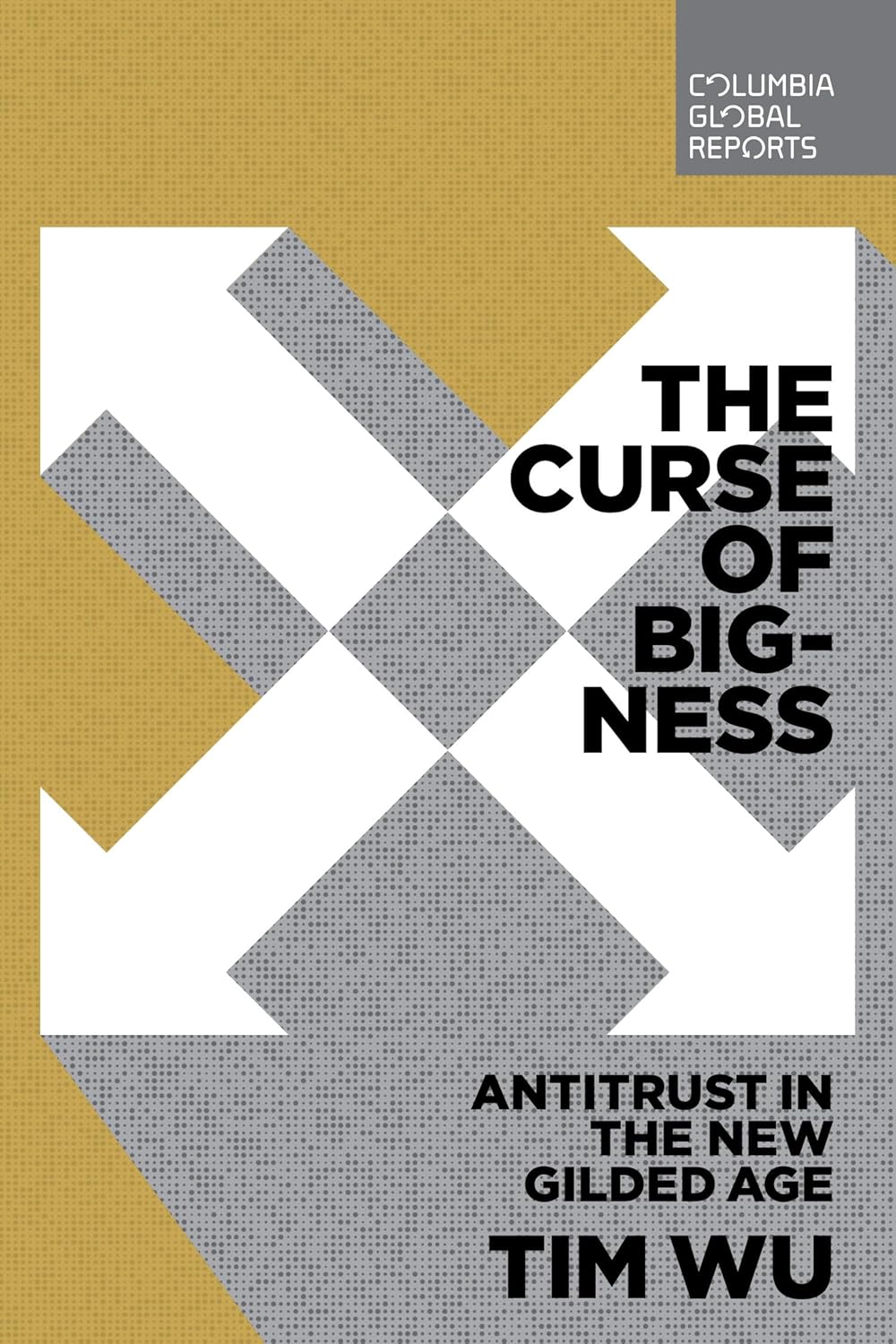In the midst of this debate over the future of antitrust comes Tim Wu’s The Curse of Bigness: Antitrust in the New Gilded Age. In this concise and accessible history, Wu, a professor at Columbia Law School, takes us from the great merger movement of the late nineteenth century to the antitrust legislation and prosecutions in the Progressive Era to “peak antitrust” in the mid-twentieth century. He judiciously describes how the “Chicago School” of antitrust, with its narrow focus on consumer welfare, came to dominate antitrust law and ushered in our new era of monopoly capitalism. As he briskly narrates the origins and evolution of antitrust law in America, he makes the case that the narrow economic approach is a betrayal of its purposes and historic understanding. The central goals of antitrust law and policy, he argues, have always included preserving the conditions for democracy.
Whether it was Senator John Sherman, author of the Sherman Antitrust Act of 1890, Theodore Roosevelt in his trust-busting prosecutions of Standard Oil and J.P. Morgan’s railroad trust, or Woodrow Wilson, who created the Federal Trade Commission in 1914, the founders of antitrust law saw its work as both political and economic. No problem “is more threatening than the inequality of condition, of wealth, and opportunity,” Sherman said in the debates leading to his eponymous bill. “If the concerted powers of this combination,” he continued, “are entrusted to a single man, it is a kingly prerogative, inconsistent with our form of government.”
What the framers of the antitrust laws understood is that concentrated private power poses a threat to freedom, to our constitutional republic. When a small number of people wield unchecked power, they can oppress their workers and employees, crush the opportunity of any entrepreneur or small business, and even control the government. The result is not a republican form of government, in which representatives of the people rule. The result is an oligarchy or a plutocracy, in which freedom exists only for those with wealth and power. As the celebrated historian Richard Hofstadter once commented of the antitrust movement of the Gilded Age and Progressive Era: “Nothing less was at stake than the entire organization of American business and American politics, the very question of who was to control the country.”
The most famous trustbuster of the era was, of course, Theodore Roosevelt. And here, Wu’s account of the history of antitrust takes a different tack from that of many other neo-Brandeisians. As their name suggests, the neo-Brandeisians tend to be devotees of Supreme Court Justice Louis Brandeis—and implicitly opponents of Roosevelt. Both Brandeis and Roosevelt believed that our constitutional system could not survive if a small number of companies or individuals controlled the government. But whereas Brandeis emphasized breaking up the powerful trusts, Roosevelt thought that bigness might not be a problem if the federal government could prevent big companies from engaging in bad behavior. Both Brandeis and Roosevelt supported public utilities regulation as a way to deal with monopolies, but Brandeis is generally seen as a decentralizer and Roosevelt as a nationalist.
